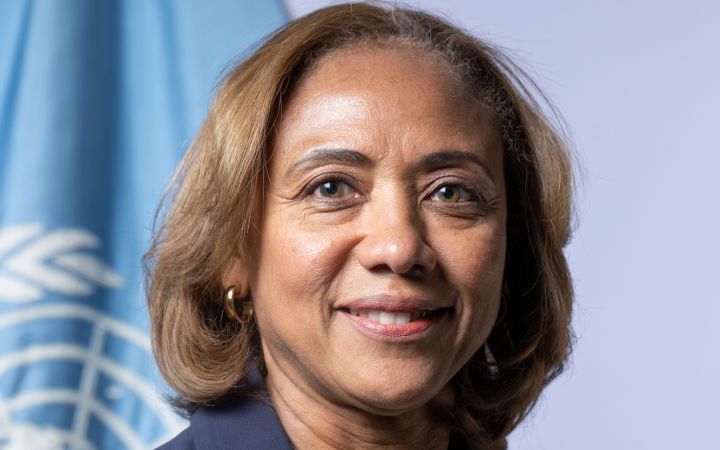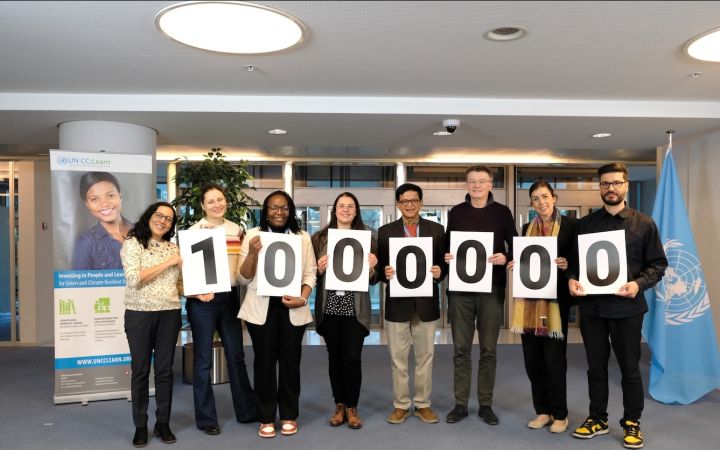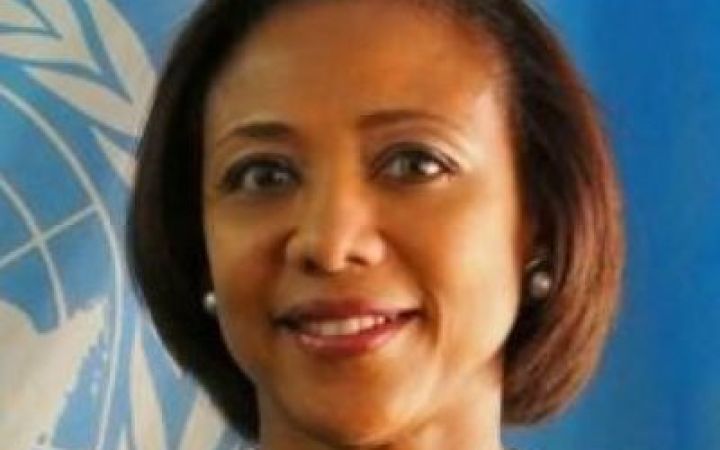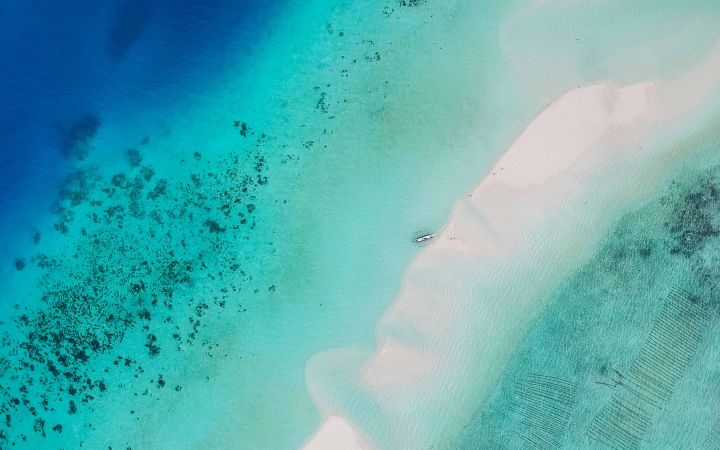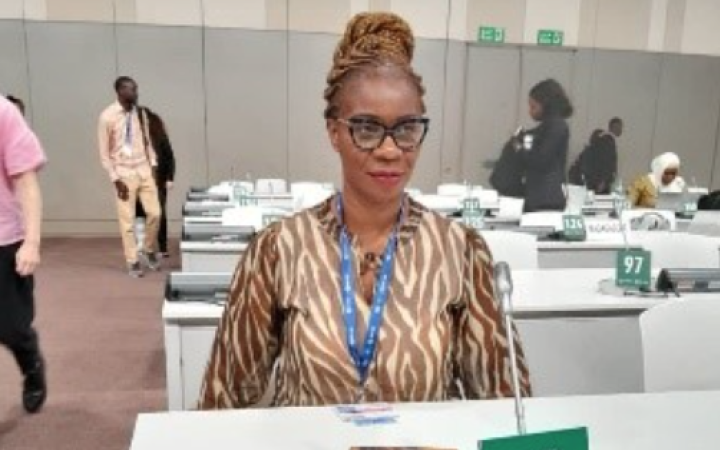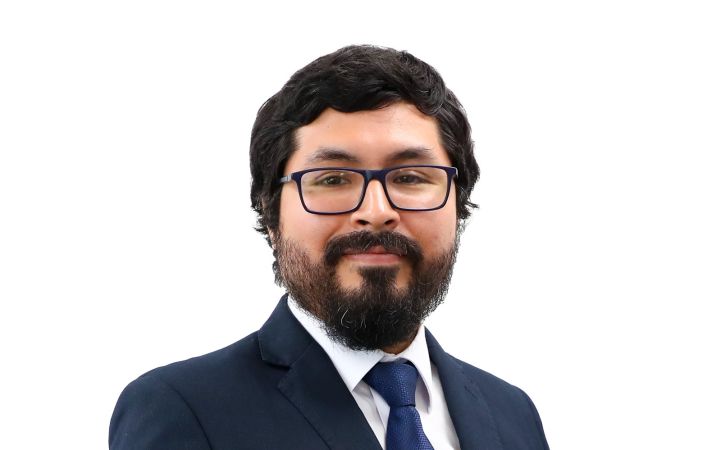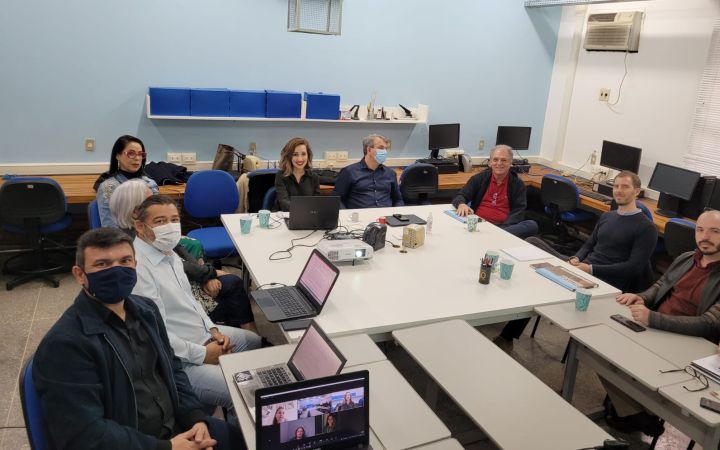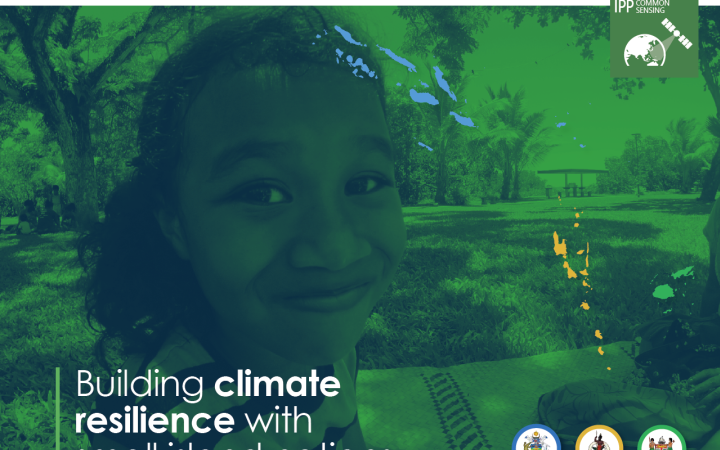Displaying 11 - 20 of 171
22 February 2025, Geneva, Switzerland – The United Nations Institute for Training and Research (UNITAR) is pleased to announce that Michelle Gyles-McDonnough has officially assumed office as its new Executive Director. She succeeds Nikhil Seth of India, whose mandate concluded on 31 January 2025.
21 January 2025, Geneva, Switzerland - Last week, the UN CC:Learn e-learning platform received its 1,000,000th registration. This significant achievement highlights the growing importance of UN CC:Learn as the go-to place for high-quality and up-to-date learning on climate change, green economy and circular economy.
16 December 2024, New York, USA - United Nations Secretary-General António Guterres announced today the appointment of Michelle Gyles-McDonnough of Jamaica as the new Executive Director of the United Nations Institute for Training and Research (UNITAR). She will officially assume her duties on 22 February 2025, succeeding Nikhil Seth of India, to whom the Secretary-General expressed profound gratitude for his dedication and contributions to the United Nations.
24 October 2024, In September, Member States came together to adopt a visionary Pact for the Future aimed at aligning international efforts with contemporary realities and future challenges. Today, on UN Day, the six research and training institutes of the United Nations reaffirm their commitment to supporting the Pact of the Future through specialized knowledge, learning, research and training for the UN system – benefitting the world as a whole.
This story is about one of the two radio programmes that has sparked a wave of environmental consciousness across Zimbabwe, educating its listeners and fostering a nationwide discussion on climate change. Based on interviews with three different individuals—the radio host, an interviewer, and a teacher—the story is explored through their unique perspectives, showcasing how the program has influenced both its creators and educators who engage with it. By providing accessible, engaging content, the show was a vital source of climate change education for a wide audience, from urban centres to remote rural communities. Its ability to spark meaningful dialogue has fostered a nationwide discussion on critical environmental issues, inspiring listeners to become more aware of their impact on the planet and take action in their daily lives.
A six-week moderated online course for professionals interested in mobilising public and private finance for climate action
Stepping up as a co-facilitator at COP28 negotiations on gender
Angela, or Angèle as she is called in the Democratic Republic of the Congo (DRC), is a National Gender and Climate Change Focal Point (NGCCFP) at the UNFCCC for the DRC and works as a course guide for the night school for new negotiators organized by the Women’s Environment and Development Organization (WEDO). Initially, Angela was educated in the area of health (tracheostomy). Her journey related to climate change started at COP22 in 2016 in Marrakech, where she met the DRC Delegation, which led to her appointment as Gender and Climate Change focal point.
Angela, or Angèle as she is called in the Democratic Republic of the Congo (DRC), is a National Gender and Climate Change Focal Point (NGCCFP) at the UNFCCC for the DRC and works as a course guide for the night school for new negotiators organized by the Women’s Environment and Development Organization (WEDO). Initially, Angela was educated in the area of health (tracheostomy). Her journey related to climate change started at COP22 in 2016 in Marrakech, where she met the DRC Delegation, which led to her appointment as Gender and Climate Change focal point.
Paulo Porta, Director of the Pollution and Chemical Substances Control Directorate at the Ministry of Environment, Peru, and his team have played a key role in the formulation of the Ley de Gestión Integral de Sustancias Químicas in Peru, as well as its regulation. His unit deals with two main branches: pollution control and chemicals management. It is in relation to this second area that Paulo has participated in UNITAR training courses and has worked hand in hand with specialists from the Institute.
The agriculture powerhouse state of Mato Grosso in Brazil is not instantly linked to a green economy. But there are people there who want to change this, notably Karyna Rosetti. Karyna is a professor at the Federal University of Mato Grosso (UFMT), who has been working to deliver green economy education to graduate and postgraduate students in the state.
28 May 2024, Geneva, Switzerland - In the vast expanse of the Pacific, where the azure waters meet lush islands, the threat of climate change is not distant, but a reality deeply anchored in the present. Rising sea levels, frequent flooding, and coastal erosion pose relentless threats to their rich ecosystems and communities. Despite contributing minimally to global carbon emissions, these island nations face staggering costs to bolster their infrastructure against climate-induced hazards. Estimates suggest that Pacific island countries need to invest between 6% and 9% of their annual GDP—which is approximately $1 billion annually for the region—to fortify their defences against climate change. In response to these urgent needs, UNOSAT has stepped up, leveraging its technological prowess and capacity-building initiatives to enhance resilience and safeguard livelihoods.


